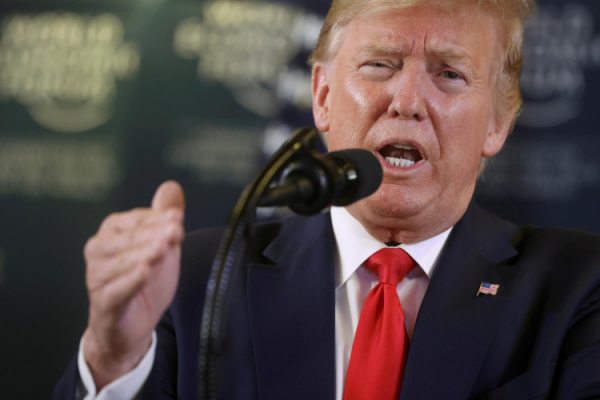Republican-Led States Support Donald Trump's Legal Effort To Challenge Election

On Monday, Republican-led state governments began to exercise their influence and authority to back President Donald Trump’s legal drive to disagree with the announced last week's presidential election results. The president has repeatedly raised questions regarding the legitimacy of mail-in ballots, baselessly claiming several times ahead of Election Day that it leads to voters' fraud.
An alliance of Republican attorneys general filed an amicus brief at the Supreme Court, urging the justices to investigate and settle a dispute from Pennsylvania regarding a ruling issued by the state’s Supreme Court back in Sept., allowing three additional days for receiving mail-in ballots cast in the recently concluded election. The ten Republican attorneys general aligned with their states with claims from Trump’s presidential campaign, a pair of GOP state legislative leaders, and the Pennsylvania Republican Party that the Supreme Court’s decision took powers that the Constitution has assigned to the state legislatures.
Leading the brief, Missouri Attorney General Eric Schmitt pointed out during a news conference on Monday that the power is specifically given to state legislatures to direct manner, frameworks, time, and place for their state's election. He accused the Pennsylvania state Supreme Court of overstepping their bounds and interfering with the legislature’s authority.
Moreover, the states backed Trump's arguments surrounding alleged widespread election fraud, citing isolated cases from previous elections and a database provided by a conservative think tank that a report from the PBS investigative program dubbed Frontline recently deemed as overhyped. Although the brief was made under the Republican Attorneys General Association's auspices, Oklahoma Attorney General Mike Hunter said he did not feel the submission did not represent a political intervention on behalf of the president.
Hunter described the Pennsylvania court ruling as a horrible precedent, adding that it is not a political exercise. According to the brief, mail balloting is more vulnerable to fraud, and it backs these claims by pointing to such cases from earlier elections, POLITICO reported.
Although Election administrators admit that mail voting is slightly more susceptible to fraud than in-person voting, they claim American elections are fraud-free, noting that a few incidents in the past can't be considered proof of widespread fraud. Moreover, they claim there are multiple safeguards in place to ensure the integrity of the election is protected.
On Monday, the president's lawyer Jay Sekulow said several states would argue that Pennsylvania fight outcome and other election-related lawsuits affect their interests because of wrongdoing in any state tone-down votes of electors in the rest of the states.












